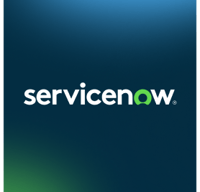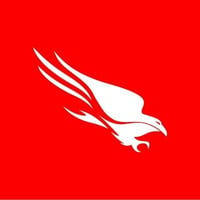Similar Jobs
Artificial Intelligence • Cloud • HR Tech • Information Technology • Productivity • Software • Automation
Develop and maintain high-quality software, integrating AI tools, while mentoring colleagues and managing technical risk in projects.
Top Skills:
AIAngularJavaReactVue
Artificial Intelligence • Cloud • HR Tech • Information Technology • Productivity • Software • Automation
Develop scalable and reusable software, mentor team members, integrate AI into processes, and design user-friendly software while ensuring high delivery quality.
Top Skills:
Ai Productivity ToolsAngularJavaReactVue
Cloud • Computer Vision • Information Technology • Sales • Security • Cybersecurity
The Platform Security Engineer will build and maintain security infrastructures, automate workflows, and support threat detection and incident response operations.
Top Skills:
AnsibleAWSAzureDockerElkGCPGoKubernetesPythonSplunkTerraform
The Security Platform Engineer is a member of the Security Engineering team focused on building and operating infrastructure to support the detection, analysis, and mitigation of security threats across Lumin Digital’s cloud-native platform. This role blends principles of site reliability engineering with a strong security mindset — designing specialized security systems that are resilient, observable, and defensible at scale.
Security Platform Engineers contribute to our platform’s integrity by designing, deploying, and maintaining security solutions, including telemetry pipelines, CI/CD workflows, and secure-by-default patterns for teams to build upon.
Essential Functions
Build and maintain infrastructure for security-focused telemetry and observability, including logging clusters, ingest pipelines, and alerting tools that enable effective detection and response capabilities.
Develop and maintain CI/CD pipeline integrations that automatically scan for vulnerabilities, enforce policy guardrails, and promote secure artifact handling across environments.
Use infrastructure-as-code tools (e.g., Terraform) to codify cloud environments and security services, enforcing consistency, auditability, and separation of duties.
Secure Kubernetes workloads by configuring RBAC, network policies, and deployment safeguards to reduce lateral movement and minimize blast radius.
Participate in an on-call rotation for security-related services, triaging incidents and contributing to post-incident reviews and durable improvements to runbooks and monitoring.
Implement and continuously improve index management, performance tuning, and role-based access controls for logging environments supporting security use cases.
Design and advocate for secure cross-account and multi-region infrastructure patterns, including the use of KMS, IAM roles, and VPC configurations to protect sensitive data in motion and at rest.
Collaborate with platform and product engineering teams to embed security into system architecture, deployment processes, and operational practices from the start.
Support internal security audits and incident response activities by maintaining logs, ensuring data fidelity, and automating evidence collection where feasible.
Position Specifications
Education:
Associate degree in Computer Science, Information Security, or related field; or equivalent self-directed study with demonstrated competency in security operations, cloud engineering, or platform reliability required.
Experience:
Three (3) years of relevant experience in cloud infrastructure, platform engineering, or security engineering.
Two (2) years of experience designing and operating cloud-native services (preferably AWS), including experience with CI/CD automation, monitoring, and infrastructure-as-code.
Experience with Kubernetes, Terraform, Git-based workflows, OpenSearch (or similar platforms), and scripting (e.g., Python or Bash) required.
Knowledge, Skills, and Abilities:
Working knowledge of cloud security best practices, including the requirements and guidance from security and compliance frameworks, such as SOC 2 Trust Services Criteria, PCI Data Security Standard, the CIS Benchmarks, and the AWS Well-Architected Framework.
Technical proficiency with cloud security principles, including IAM, encryption, network segmentation, and secure telemetry collection.
Familiarity with operational practices such as capacity planning, SLO development, and incident management.
Demonstrated ability to build and support complex distributed systems using automation and configuration management.
Calm under pressure, with the ability to triage incidents and collaborate across technical and non-technical stakeholders.
Strong communication and documentation skills; able to teach and influence secure engineering practices across teams.
Ability to work independently and remotely while maintaining high levels of productivity and collaboration.
Must be able to pass requisite background checks to access sensitive information.
What you need to know about the Seattle Tech Scene
Home to tech titans like Microsoft and Amazon, Seattle punches far above its weight in innovation. But its surrounding mountains, sprinkled with world-famous hiking trails and climbing routes, make the city a destination for outdoorsy types as well. Established as a logging town before shifting to shipbuilding and logistics, the Emerald City is now known for its contributions to aerospace, software, biotech and cloud computing. And its status as a thriving tech ecosystem is attracting out-of-town companies looking to establish new tech and engineering hubs.
Key Facts About Seattle Tech
- Number of Tech Workers: 287,000; 13% of overall workforce (2024 CompTIA survey)
- Major Tech Employers: Amazon, Microsoft, Meta, Google
- Key Industries: Artificial intelligence, cloud computing, software, biotechnology, game development
- Funding Landscape: $3.1 billion in venture capital funding in 2024 (Pitchbook)
- Notable Investors: Madrona, Fuse, Tola, Maveron
- Research Centers and Universities: University of Washington, Seattle University, Seattle Pacific University, Allen Institute for Brain Science, Bill & Melinda Gates Foundation, Seattle Children’s Research Institute


